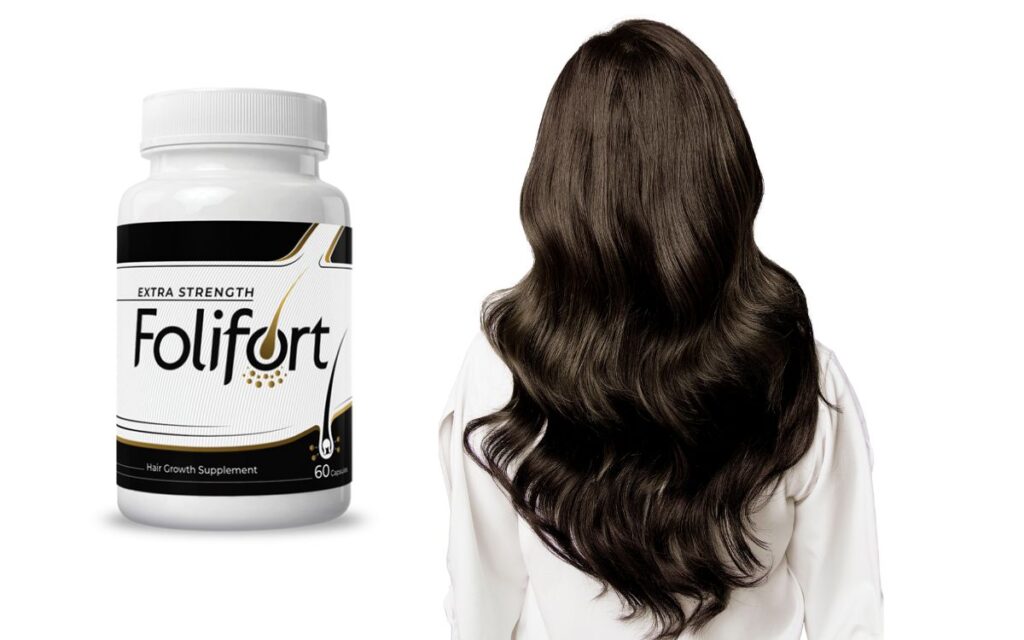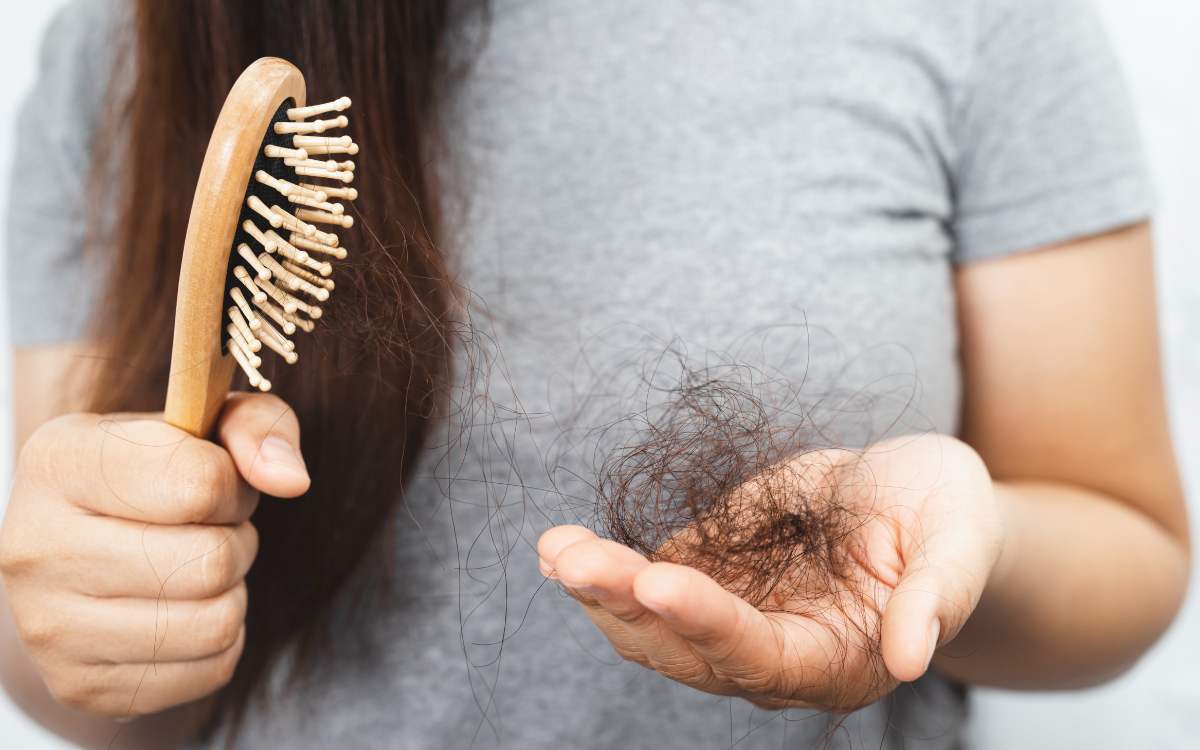Hair loss is a common problem among older women, even those who have taken good care of their locks throughout life.
Although female hair loss typically becomes more noticeable after menopause, some women can experience the effects of thinning hair as early as their 30s and 40s.
If you’re noticing more hair on your brush and in the shower, you may be wondering what’s causing it.
What Are The Possible Causes Of Older Female Hair Loss?
Older female hair loss, or female pattern baldness, can be caused by a variety of factors.
These causes include genetic predisposition, hormonal changes, medical conditions such as hypothyroidism and iron deficiency anemia, stress/anxiety, nutritional deficiencies, and certain medications.
Additionally, environmental pollutants can also contribute to hair loss in older women. Hair loss can also be caused by physical trauma to the scalp such as tight hairstyles, chemical damage from over-processing, and certain medical treatments.
Overall, it is important for women to seek medical advice if they are experiencing hair loss in order to identify the underlying causes.
Hormonal Imbalances And Older Female Hair Loss
For many older women, hormone imbalances can be the root cause of significant hair loss.
Estrogen and other hormones play essential roles in helping hair follicles stay healthy and full.
When there is a deficiency in estrogen due to menopause, for example, those same follicles may start to thin out or stop growing new hair altogether.
That’s why it is extremely important for women to be aware of these hormone shifts and seek medical advice to help them manage them in order to protect their hair.
In any case, learning more about the connection between hormonal imbalances and how they can lead to hair loss is always a smart first step that every woman should take when trying to maintain healthy locks.
Medications And Older Female Hair Loss
The relationship between medications and hair loss in older women is complex.
Certain types of medication, notably those that are taken to address heart and blood pressure problems, can often be culprits behind the significant thinning of hair.
Other medicines have been found to have a more limited effect on hair health – while they may not lead directly to hair loss, they can cause side effects such as dryness or altered texture which can certainly contribute to the overall ill health of your tresses.
All in all, it’s important for women who notice a change in their locks after starting a new medication to understand that the drug may be playing a role and should speak with their physician about any potential side effects from their treatments.
Making sure that you stay informed about how certain medications may affect you physically – including your hair – is an essential part of successful aging for every woman.
Stress And Older Female Hair Loss
Stress is an unavoidable part of life, and unfortunately, it can have a very real impact on the hair of older women.
For some, emotional distress such as grief from the loss of a loved one can lead to thinning hair or baldness as they age.
In addition, physical stressors such as too much use of chemical dyes or too much heat styling can also be damaging to the scalp and cause persistent inflammation which in turn causes hair loss.
Fortunately, there are ways to mitigate these effects, such as managing stress levels by increasing communication with friends and family, incorporating a healthy diet and exercise into daily life, and avoiding certain chemical treatments whenever possible.
With patience and dedication to self-care, women can keep their manes looking beautiful no matter their age!
Heredity And Older Female Hair Loss
Many older women begin to notice balding and thinning hair as they age.
Recent studies have shown a connection between heredity and these issues.
In particular, a strong family history of female hair loss is indicative of the condition’s prevalence in women over fifty.
While hormone-related factors can also play a role in hair loss, an especially deep ancestral line of hairless or bald women may indicate the issue’s heritability.
Ultimately, knowledge of one’s family tree is key to understanding the likelihood that heredity could be contributing to female pattern baldness.
Nutritional Deficiencies And Older Female Hair Loss
Older women can experience more than just age-related hair loss; nutritional deficiencies also play a role in thinning and balding hair.
Poor nutrition is not only a risk factor for illness, but can inhibit the body’s ability to produce healthy and strong hair follicles.
Without the necessary vitamins, minerals, and other nutrients essential for growth, it is more likely that women will experience premature hair loss prior to menopause and during perimenopause – even if genetics are not a significant factor.
Deficiencies of biotin, zinc, iron, and protein have all been linked with hair loss.
To combat this issue, taking regular supplements or eating foods rich in B vitamin complex, fatty acids protein will help boost nutrient intake levels both leading up to and during menopause.

See Folifort Hair Growth Pills Official Website
|
Chemicals And Older Female Hair Loss
Many of the chemicals in our world today are linked with further disruption of these hormone levels, resulting in increased hair loss for older women.
Examples of chemical culprits include something as every day as bleach and dyes used commonly in hair styling products, or salicylic acid, which is found in many skin care products.
While the links between chemicals and hair loss may not be extensively researched, it is important to pay attention to what might contribute to this condition for older women who may already have naturally occurring issues.
Taking preventative measures such as avoiding certain chemicals when interacting with one’s own health and beauty routines may prove to be beneficial.
Environmental Factors And Older Female Hair Loss
The relationship between environmental factors and hair loss in older women is an important one.
Exposure to pollutants in the environment, such as smog, car exhaust, and industrial waste, can be a contributing factor to hair loss.
This compound exposure can damage the follicles at the root of the scalp which can then lead to excessive hair loss or change in pigmentation.
Additionally, exposure to radiation from the sun can also have a negative impact on the scalp and cause damage.
These environmental factors often affect those who live in urban areas more than those who reside in rural settings, because of their greater exposure to such conditions.
To prevent extensive hair loss due to environmental factors, older women should use protective measures such as wearing a hat or scarf when outside, using sunscreen with an SPF of 30 or more and limiting their exposure to polluted environments whenever possible.
Lifestyle Choices And Older Female Hair Loss
Older women are more likely to experience hair loss than younger women; however, lifestyle choices can have a great impact on the health of their hair.
Activities, like smoking, not getting enough exercise, and consuming unhealthy diets full of processed foods, are known to contribute to the loss of hair in older women.
In addition, drinking alcohol excessively has been linked with increasing the chances of excessive shedding of hair.
Fortunately though, with positive lifestyle changes, many women see positive results in terms of improving their hair health.
Eating nutritious meals and avoiding activities that hurt the body can help maintain strong and healthy locks for years to come.

